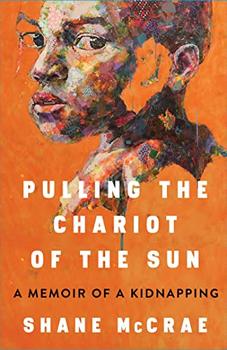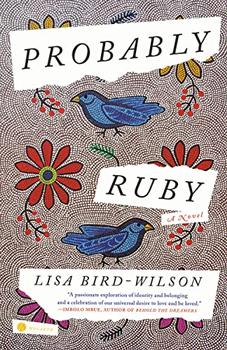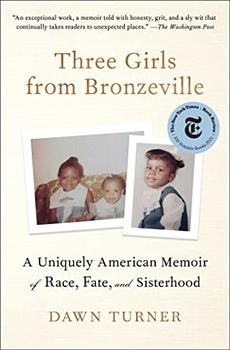Summary | Excerpt | Reading Guide | Reviews | Beyond the book | Read-Alikes | Genres & Themes | Author Bio

A Memoir of a Kidnapping
by Shane McCraeIn his memoir, award-winning poet Shane McCrae reflects upon a singular traumatic event: his brazen kidnapping by his maternal grandparents. "It's like living for 40 years as a murdered person, and then realizing that you're dead." At the age of three, his grandparents took him from Oregon to Texas after a weekend visit, without his father's permission. It was years before Shane discovered two truths. His black father had not abandoned him, as his white grandparents repeatedly said. And his mother had been threatened. If she made mention of Shane's whereabouts, she would never see him again.
Pulling the Chariot of the Sun: A Memoir of a Kidnapping is McCrae's attempt to piece together his childhood. He admits his recollection is sometimes vague and indefinite, because trauma reshapes episodic memory. What he is clear about is the physical and psychological abuse he endured. His grandparents inflicted a relentless attack of microaggressions and racism, including disdain for black culture, black identity, black appearance, and black history. This created within Shane powerlessness, a sense of racial illegitimacy, and rage. While he always knew he was black, he thought there was something wrong with being black. Why else would his grandmother have written "white" on his birth certificate while his mother was too spent from labor to fill out forms?
Life with his grandfather was violent: "My grandfather hit me so hard and with such anger my grandmother thought he would kill me." While Shane's Nazi-loving grandmother didn't strike him herself, she passionately agreed that black identity was fraudulent and needed to be erased.
Which made me wonder: How did such a miserable childhood of trauma create such a prolific poet, a finalist for the National Book Award (see Beyond the Book)? Shane wasn't the kind of kid who kept journals and wrote stories in the dark. Between beatings, he hung out with his friends and brooded. Is talent honed like this, settling in pores, crowding out damage, glistening as it sits in a wound? Having your physical body tortured and your culture defiled relentlessly, does that trigger the poet's soul?
Pulling the Chariot of the Sun is a coming-of-age story even as it is a kidnapping story. As the book winds through Shane's childhood, the kidnapping narrative takes on deep meaning. Once, when he was around six years old, Shane and a new friend he had only met the day before entered into a pact. They would break into the houses of neighbors, those who left their doors unlocked. But first, Shane would break into his new friend's house early in the morning before his parents woke up. Criminality was something exciting, and for Shane it was a misguided attempt to find his way back to his father. When he broke into his friend's house, the friend was asleep, and Shane instinctively knew he didn't belong. He felt trapped and escaped out the window. His grandparents, who were awake when he returned, hadn't called the police when they noticed him missing. They couldn't. After all, Shane was a victim of a crime: a kidnapping.
What struck me the most about this passage was his level of consciousness at the age of six. He knew he didn't belong. Not just in his friend's home. But within his grandparents' racist bubble. And the white world he had been dropped into. I was suddenly aware that, more than a kidnapping story, McCrae's memoir is a hate crime story. Or perhaps all kidnappings are hate crimes. His grandfather in particular hated what being black meant in American culture and tried to rescue Shane from its complexities by cutting it into shreds, without considering the consequence to a boy who was never celebrated, a boy whose racial identity was condemned. There wasn't an ounce of black joy in his young life. Worse, he was cut off from those who looked like him and perhaps shared the same feelings, people who could have been aspirational.
McCrae is simply a stunning writer. Like when describing himself and his family: "When I was a child, whiteness and blackness weren't facts about me, whiteness was a wheat field I stood in; blackness was a pit somewhere in the field, hidden by the somehow taller stalks growing from it."
He writes his story as if childhood is timeless. In the span of a few pages, he is a seven-year-old watching sideways rain and then a kindergartener and then an acne-faced teenager. McCrae offers, as a statement of fact, "Never as a child did I fantasize someone would save me from my grandparents." And so here we are, with his attempt to make sense of what happened to him, the complexity of it, the crime of it, the hatred of it, the ugly violence of it.
Even so, his longing for his father and for racial understanding is the heart of this bittersweet tale of life, love, and loathing. As he takes us along on the ride, through the agony and the ecstasy, the pain, and the acceptance, serenading us with his beautiful prose, we come to admire and respect how talented he is, and how resilient. He is, as Toni Morrison wrote in Beloved, his best thing.
![]() This review
first ran in the September 6, 2023
issue of BookBrowse Recommends.
This review
first ran in the September 6, 2023
issue of BookBrowse Recommends.

If you liked Pulling the Chariot of the Sun, try these:

by Lisa Bird-Wilson
Published 2023
An Indigenous woman adopted by white parents goes in search of her identity in this unforgettable debut novel about family, race, and history.

by Dawn Turner
Published 2022
A "beautiful, tragic, and inspiring" (Publishers Weekly, starred review) memoir about three Black girls from the storied Bronzeville section of Chicago that offers a penetrating exploration of race, opportunity, friendship, sisterhood, and the powerful forces at work that allow some to flourish…and others to falter.
Your guide toexceptional books
BookBrowse seeks out and recommends the best in contemporary fiction and nonfiction—books that not only engage and entertain but also deepen our understanding of ourselves and the world around us.